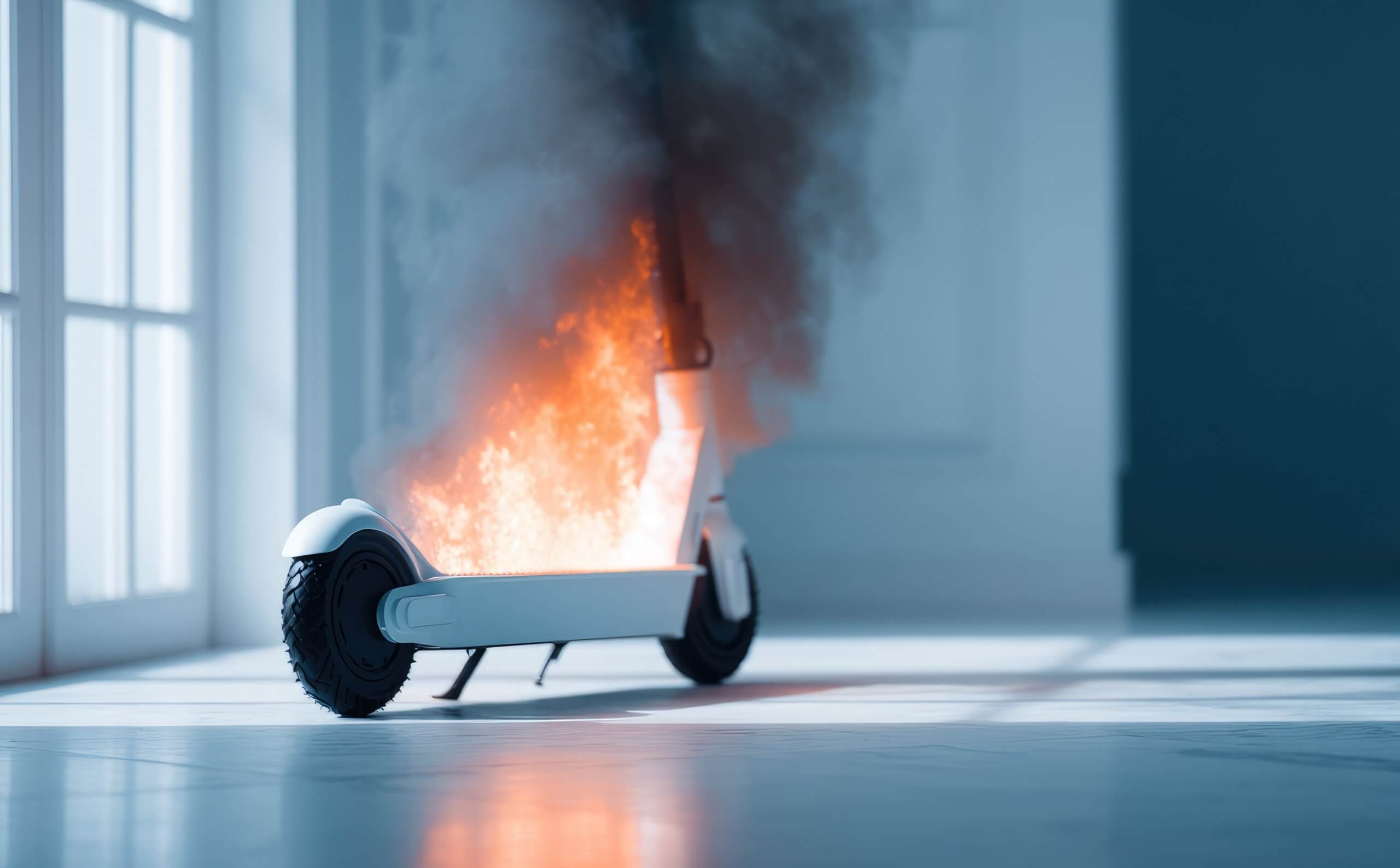Quick Hits
- The Regional Social Court of Berlin and Brandenburg ruled that injuries from jumping out of an apartment window while working from home are not covered by statutory accident insurance, as the jump was deemed to serve a private purpose rather than a work-related activity.
- This decision is consistent with prior rulings on home office accidents, including a Federal Social Court ruling handed down in late 2021.
Facts of the Case
The employee worked as a software developer and used the living room of his first‑floor apartment as a home office. In January 2021, during a work teleconference, smoke entered the living room from the hallway. When he opened the door to investigate, the batteries of his e‑scooter, which he had stored in the apartment, exploded. A flash fire and heavy smoke ensued. The employee jumped from the window into the courtyard to escape. In doing so he fractured both his feet. He claimed that his injuries resulted from a work accident—after all, he was working from home and participating in a teleconference when the incident occurred.
The statutory accident insurance carrier (Berufsgenossenschaft) held that the mishap does not constitute a work accident. The Berlin Social Court agreed after the employee filed suit. The employee appealed.
LSG’s Reasoning
The LSG upheld the lower court’s decision and the carrier’s position. In the court’s view, the employee’s work activity at the time of the accident was not closely related to his insured activity as a software developer. His jump from the window was not objectively tied to his work in the home office or the ongoing teleconference. Moreover, he did not sustain his injuries during the teleconference itself. Rather, the injuries occurred after he jumped from the window.
The court further reasoned that the jump primarily served the private purpose of saving the employee’s life. The implicit preservation of his ability to work played only a subordinate role. Prior case law on work accidents in home offices does not alter this outcome. A work accident may be recognized as such when hazards arise from private objects in the home office, but only if those objects were used for professional activities. This was not the case for the batteries of the privately owned e-scooter. This remains true, according to the court, even if the scooter is used for commuting to and from work.
Outlook
The judgment is not yet final. The decision is consistent with prior rulings on home office accidents, including a Federal Social Court (Bundessozialgericht)ruling handed down in late 2021. Courts do not treat private accidents as work accidents when there is no connection to the performance of work duties.
Key Takeaway
Whether an accident is considered work-related or private depends largely on the factual connection between the activity performed at the time of the accident and the insured work. If the activity during which the injury occurred predominantly serves private purposes (here, the jump to safety), then it is not considered a work accident.
Ogletree Deakins’ Berlin and Munich offices and Cross-Border Practice Group will continue to monitor developments and will post updates on the Cross-Border and Workplace Safety and Health blogs as additional information becomes available.
Andre Appel is a partner in Ogletree Deakins’ Berlin office.
Teodora E. Ghinoiu, a law clerk in Ogletree Deakins’ Berlin office, contributed to this article.
Image: stock.adobe.com




